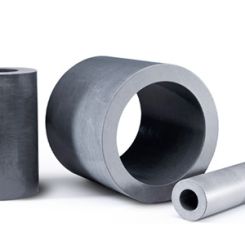
One thing that’s easy for companies to push aside during times like these—a global pandemic and economic downturn—is the marketing budget. But, before you jump on what you think is the easy fix, take a look at these numbers:
- Businesses that chose to maintain or raise their marketing expenditures during the 1981 and 1982 recession had significantly higher sales after the economy recovered, according to McGraw-Hill Research.
- In December 2008, Harvard Business Review studied 4,700 public companies across three periods: the three years before a recession, the three after, and within the recession period. Of the sample, only 9 percent flourished after a slowdown, outperforming rivals by at least 10 percent in sales and profits growth. According to the study, “These companies also judiciously increased spending on R&D and marketing, which may produce only modest benefits during the recession, but adds substantially to sales and profits afterward.”
These studies, highlighted in an article from business-to-business marketing agency Reputation Ink, “How much should you spend on marketing during a recession? Here’s what the research says,” all point to the long-term effects of investing in marketing now.
For a source who is closer to the pumps industry, Pumps & Systems spoke with Randy Breaux, president of industrial distributor Motion Industries, a wholly owned subsidiary of Genuine Parts Co. and headquartered in Birmingham, Alabama.
Breaux, who has four decades of experience in the industrial manufacturing and distribution markets, joined Motion Industries in 2011, following 21 years in management roles with ABB/Baldor Electric Co., a manufacturer of industrial electric motors, drives and mechanical power transmission components.
.jpg) Randy Breaux
Randy BreauxP&S: Studies have shown that in an economic downturn, it's worth it for companies to maintain, or even increase, their marketing efforts. Would you agree with this assessment, and why or why not?
Breaux: I do agree, though it is contrary to what most believe. Marketing generates perceived value—you can’t put a dollar on it. You either believe that marketing is working for you, or you don’t. As a result of that, it’s an easy one to let go. I’ve seen it over and over again in my 40-year career. They wonder why they lose market share after things settle, and that’s a high part of it. During times when everyone pulls back on advertising and marketing is the perfect time to position yourself, your company and your value proposition to gain mindshare with customers. In doing so, you solidify your existing position with current customers and possibly open up new opportunities with new customers.
P&S: During this pandemic period, what has Motion Industries invested in marketing-wise, and why do you believe those investments were a good idea?
Breaux: We launched a new “Essential” campaign to let customers know that we, too, are essential in supporting their businesses that have been deemed essential. And a new “Business as Usual” campaign to remind them that although business today is not usual as we knew it only a few months ago, doing business with Motion remains usual, and they can expect the same or better levels of service as we have provided in the past. In addition, we fast-tracked the release of our new motion.com site for those customers that are more comfortable using the web to transact business, now that face-to-face problem solving is discouraged due to COVID-19.
.jpg)
P&S: What kind of message should companies want to deliver to their customers during this time? Are there any messages that companies should beware of pushing?
Breaux: Every company is different, so it is hard for me to generalize. I believe our two messages are on point with what our customers are going through right now. Providing a feeling or sense of security and calm does everyone good in a crisis, so that is the right message to deliver. But, of course, you have to back it up with actions, and that is the difficult part. Ensure that marketing is in communications with the operations side. If operations couldn’t accommodate something before a pandemic, what makes you think they can do it during a pandemic? If we make a promise, we’re going to deliver on it. As for don’t—you should never over-promise and under-deliver with your advertising or marketing message, during a pandemic or not.
P&S: What marketing efforts do you think work best during this time, or during other times of crisis? Is there a certain media (print, radio, newsletters, etc.) that work best?
Breaux: We use an omni-channel approach with our marketing activities, giving our customers choices on how they want to receive our messaging. We have a robust digital platform, we use print advertising and social media. What has fallen to the wayside, obviously, are in-person tradeshows, however, digital tradeshows seem to be gaining some appeal. In addition, we regularly provide our customers and prospective customers product information, online video learning and more. For a super-effective marketing strategy, you have to use all of the technologies available to get your message across.
P&S: Do you think your external marketing efforts have had an effect on the internal morale of your employees?
Breaux: Absolutely. First, we wanted to let customers know we’re still here, we’re deemed essential and you can count on us. Motion will get you what you need to continue running. We are essential to our customers—we wanted to let everyone [internally] to have that mindset. We wanted them to know that you are essential in solving the issues related to the pandemic. It was an internal and external campaign to educate that we’re essential to what they do. It boosts morale.

